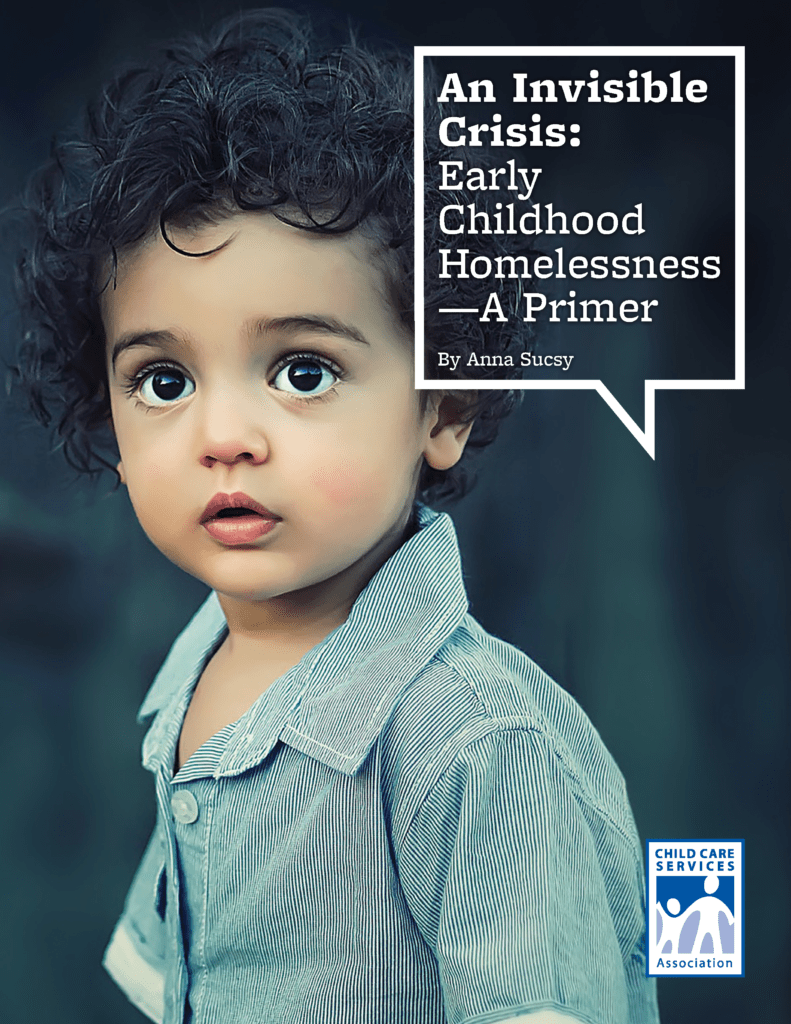An Invisible Crisis: Early Childhood Homelessness – A Primer
Approximately one in 18 (1.3 million) infants, toddlers and preschoolers experiences homelessness each year. Think about that for a minute. That includes babies who won’t experience the comfort of a safe and secure place to rest their heads. In our country.

I had the opportunity to work with Anna Sucsy, a master’s candidate (’22) at the University of Wisconsin-Madison Master of Public Affairs who completed an Early Childhood Policy Internship with CCSA this summer. Many thanks to Gerry Cobb for introducing us. I always enjoy working with policy interns. We developed the 50 state profiles on homelessness with Jinha Yoon from Georgetown, for example, and had students from the University of Maryland analyze Race to the Top workforce areas. It is exciting to see new eyes work on challenging policy issues, and I’ve been fortunate to work with great, curious minds.
Prior to joining CCSA this summer, Anna worked for the Prenatal-to-3 Policy Impact Center at The University of Texas at Austin where she researched policies relating to family economic security, maternal and child health and early care and education. While in school, Anna works as a graduate research assistant at the Institute for Research on Poverty.
Having previously worked in early childhood research and policy, Anna knew the impact that young children’s earliest years have on their lifelong health and well-being. She knew the importance of brain development in the early years. Studying early childhood homelessness was new, and she synthesized an enormous amount of literature for this paper. I had been talking about a new primer on early childhood homelessness for a few years, and I am grateful to Anna for her hard work to have this happen. There were many, many drafts and changes!
Anna said this work will have her look at future research differently. I am thrilled Anna gained a newfound passion for child and family homelessness. That’s what a graduate internship is all about!

Please take time to read Anna’s paper, An Invisible Crisis: Early Childhood Homelessness – A Primer. Our young children are at risk, and children experiencing homelessness are at higher risk. We are still in the middle of a pandemic. Residents of several million households are concerned they will have to leave their homes due to eviction in the next two months, according to recent Census Bureau data. That means more families with young children could be forced into the streets.
After you read An Invisible Crisis: Early Childhood Homelessness – A Primer, please share the resources in your community to help families. In North Carolina, the N.C. Housing Opportunities and Prevention of Evictions (HOPE) Program is still accepting applications from low-income renters who have suffered financial setbacks due to the COVID-19 pandemic. The nationwide eviction moratorium has ended, and renters will not have protection from eviction for non-payment of rent. Find information about eligibility, benefits and an online application at www.HOPE.NC.gov. Not from N.C.? Look for your state. See information here.




